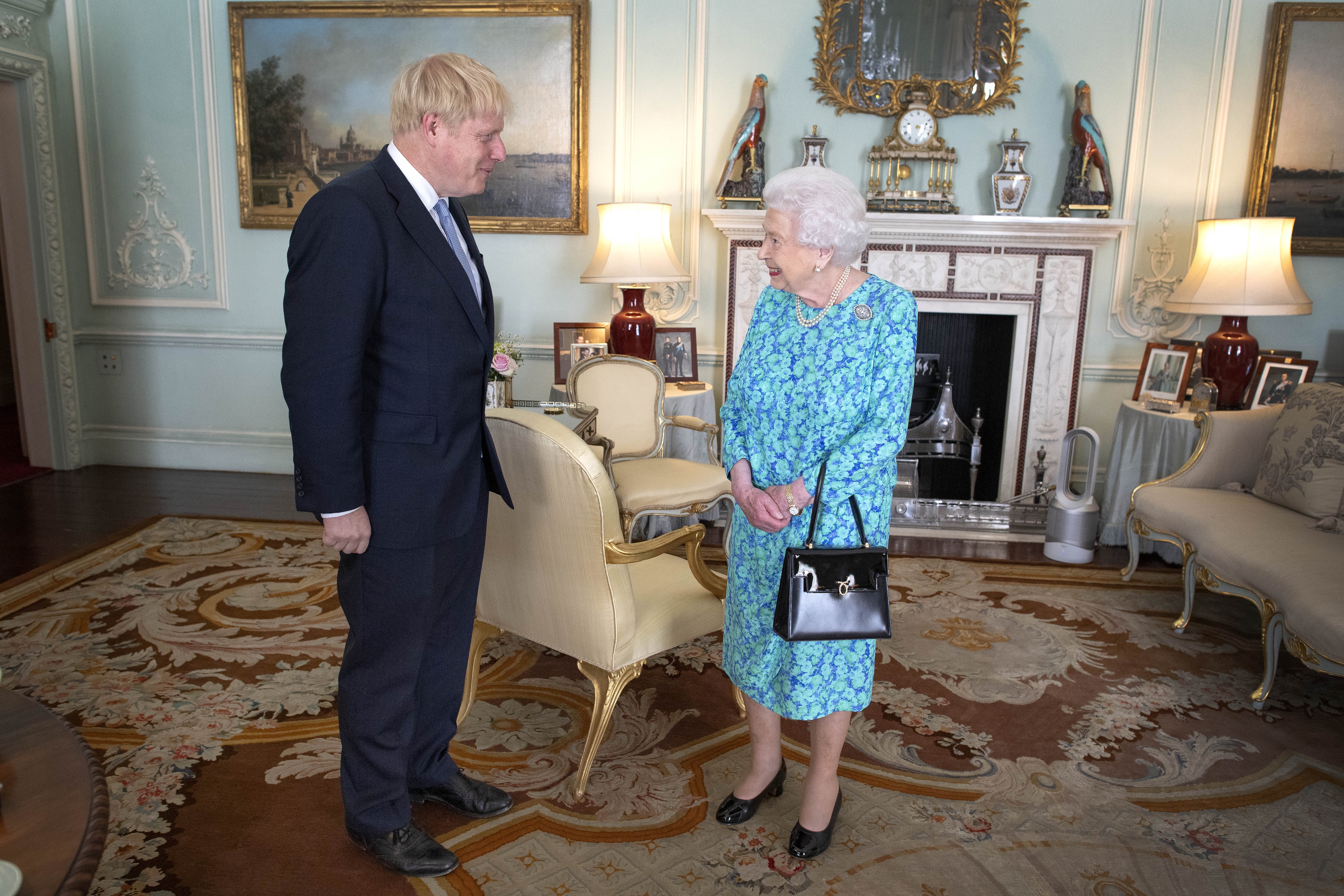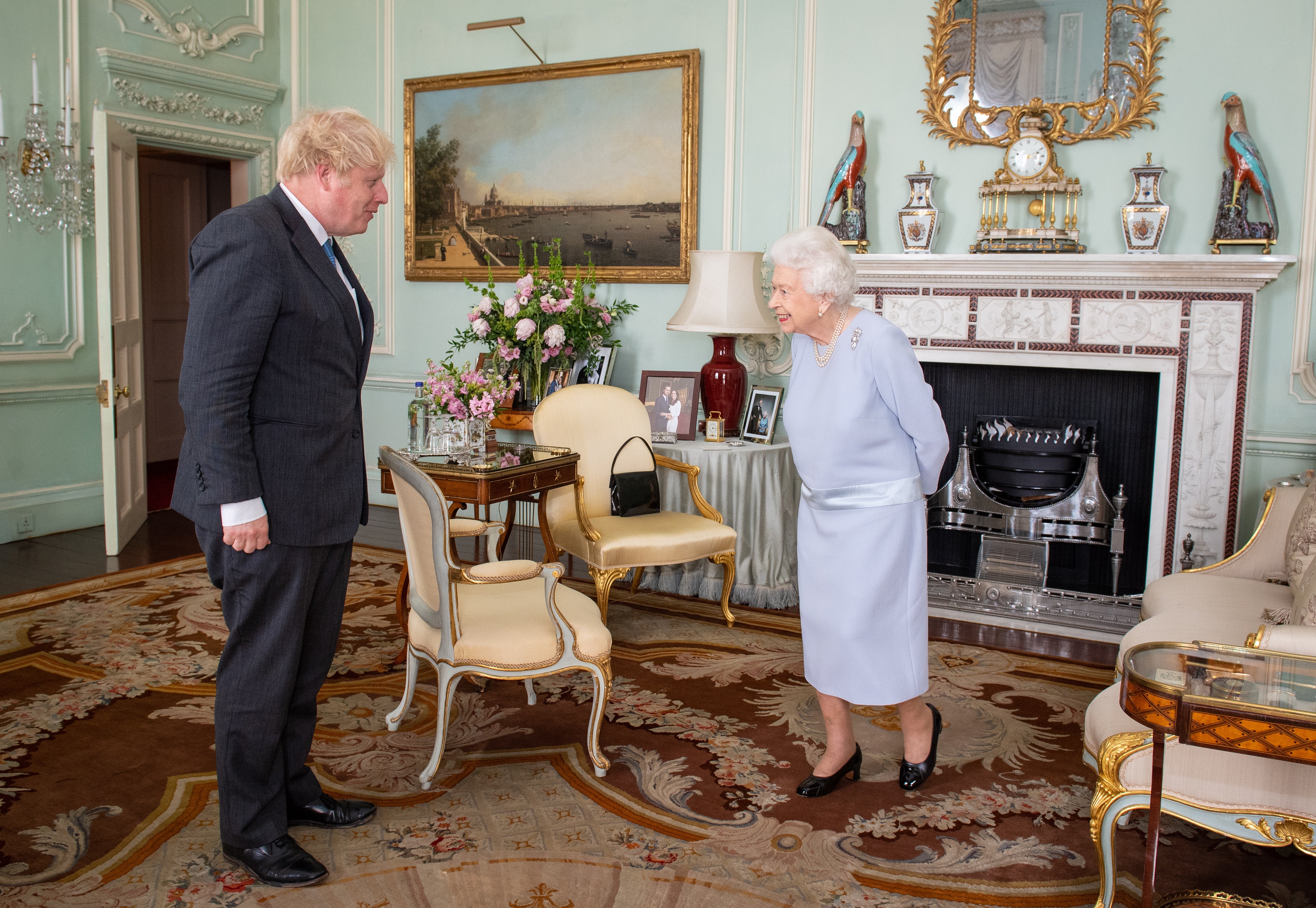Queen ‘would have avoided meeting with Boris Johnson if he wanted snap election’
Late monarch’s ‘Magic Circle’ would have moved to block the move by embattled Boris Johnson, book claims

Your support helps us to tell the story
From reproductive rights to climate change to Big Tech, The Independent is on the ground when the story is developing. Whether it's investigating the financials of Elon Musk's pro-Trump PAC or producing our latest documentary, 'The A Word', which shines a light on the American women fighting for reproductive rights, we know how important it is to parse out the facts from the messaging.
At such a critical moment in US history, we need reporters on the ground. Your donation allows us to keep sending journalists to speak to both sides of the story.
The Independent is trusted by Americans across the entire political spectrum. And unlike many other quality news outlets, we choose not to lock Americans out of our reporting and analysis with paywalls. We believe quality journalism should be available to everyone, paid for by those who can afford it.
Your support makes all the difference.The Queen would have avoided meeting Boris Johnson if he wanted to call a snap election in a bid to cling on to power, a new book claims.
A snap poll was among scenarios that were “wargamed” by Downing Street during the collapse of Mr Johnson’s premiership in the wake of the Chris Pincher affair in July.
But monarchs can block prime ministers from going to the polls in line with the Lascelles Principles, which guard against unnecessary and aggravating election requests.
Mr Johnson had dropped hints on 6 July that he would be willing to call an election as the Tory party sought to remove him.
Sebastian Payne, a journalist, claims in his new book The Fall of Boris Johnson that a “magic triangle” of senior figures were ready to prevent that. The Daily Telegraph reports among those figures were Sir Graham Brady, the 1922 committee chairman, Simon Case, the cabinet secretary, and Sir Edward Young, the Queen’s chief courtier.
A Whitehall insider is quoted as saying: “If there was an effort to call an election, Tory MPs would have expected Brady to communicate to the palace that we would be holding a vote of confidence in the very near future and that it might make sense for Her Majesty to be unavailable for a day.”

According to a second source, it would be “politely communicated to Downing Street” that the Queen “couldn’t come to the phone” if she received a request for a call about dissolving parliament.
Mr Johnson quit on 7 July after a torrent of resignation letters were handed in by ministers.
Following the Queen’s death the week he left office, Mr Johnson paid a heartfelt tribute to “Elizabeth the Great.”
Mr Johnson said in a statement that it was the “saddest day” for the UK because the Queen’s “bright and shining light” had “finally gone out.”

The former prime minister saw the Queen just two days before he resigned as prime minister and was replaced by Liz Truss, who gave her own tribute to the Queen.
He said that in the hearts of all Britons “there is an ache at the passing of our queen, a deep and personal sense of loss — far more intense, perhaps, than we expected.”
“She seemed so timeless and so wonderful that I am afraid we had come to believe, like children, that she would just go on and on,” Mr Johnson said.
The Fall of Boris Johnson will be published on Thursday.



Join our commenting forum
Join thought-provoking conversations, follow other Independent readers and see their replies
Comments